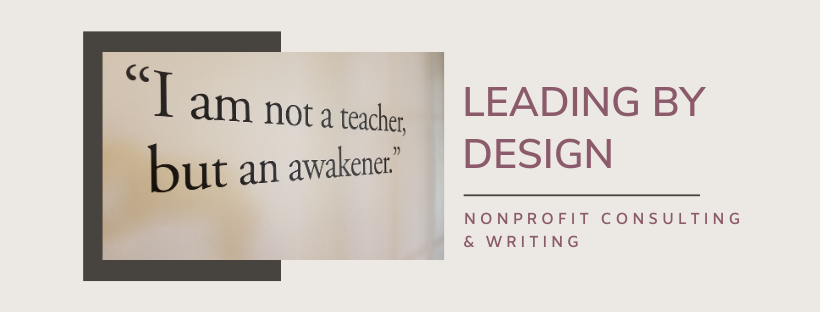I KNOW THAT MANY OF US, MYSELF INCLUDED, ARE LOOKING for ways to encourage and maybe even inspire boards to take an active role in their own leadership and decision-making growth. It's not easy. That's why I thought the following from Hildy Gottlieb, President of the Community-Driven Institute , in response to a question on LinkedIn about board learning was one I wanted to share with you. Hildy's suggestions for creating a board learning environment can be used by organizations of any size, with staff or not. So, go for it! I have been encouraging boards to actually begin doing their work as learning communities - with generative discussion being a big part of each meeting, focused on the things that matter most - vision, values, making a difference, measuring that difference. Focusing on the "intentional" part of your question, some strategies I've seen work well. • Have the generative discussion be the first item on the agenda, to set the tone for the
